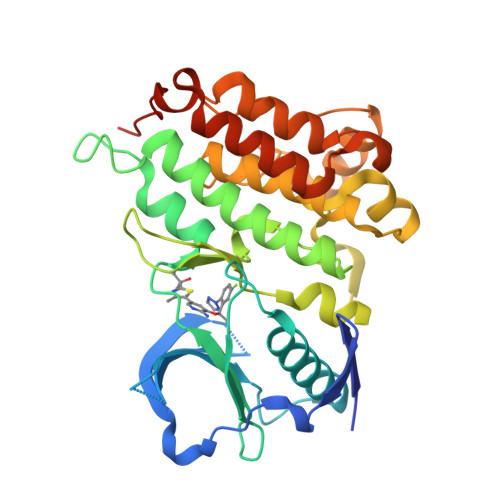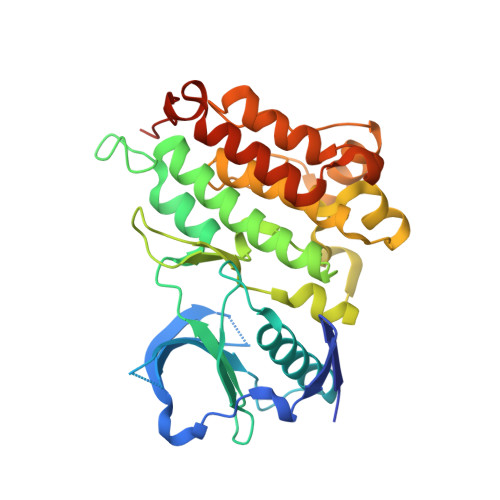Analysis of lorlatinib analogs reveals a roadmap for targeting diverse compound resistance mutations in ALK-positive lung cancer.
Shiba-Ishii, A., Johnson, T.W., Dagogo-Jack, I., Mino-Kenudson, M., Johnson, T.R., Wei, P., Weinrich, S.L., McTigue, M.A., Walcott, M.A., Nguyen-Phuong, L., Dionne, K., Acker, A., Kiedrowski, L.A., Do, A., Peterson, J.L., Barth, J.L., Yeap, B.Y., Gainor, J.F., Lin, J.J., Yoda, S., Hata, A.N.(2022) Nat Cancer 3: 710-722
- PubMed: 35726063
- DOI: https://doi.org/10.1038/s43018-022-00399-6
- Primary Citation of Related Structures:
7R7K, 7R7R - PubMed Abstract:
Lorlatinib is currently the most advanced, potent and selective anaplastic lymphoma kinase (ALK) tyrosine kinase inhibitor for the treatment of ALK-positive non-small cell lung cancer in the clinic; however, diverse compound ALK mutations driving therapy resistance emerge. Here, we determine the spectrum of lorlatinib-resistant compound ALK mutations in patients, following treatment with lorlatinib, the majority of which involve ALK G1202R or I1171N/S/T. We further identify structurally diverse lorlatinib analogs that harbor differential selective profiles against G1202R versus I1171N/S/T compound ALK mutations. Structural analysis revealed increased potency against compound mutations through improved inhibition of either G1202R or I1171N/S/T mutant kinases. Overall, we propose a classification of heterogenous ALK compound mutations enabling the development of distinct therapeutic strategies for precision targeting following sequential tyrosine kinase inhibitors.
Organizational Affiliation:
Massachusetts General Hospital Cancer Center, Charlestown, MA, USA.



















